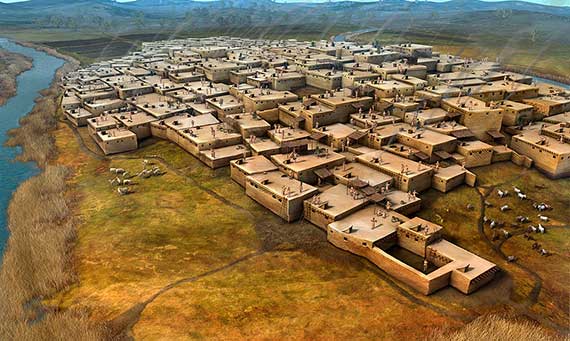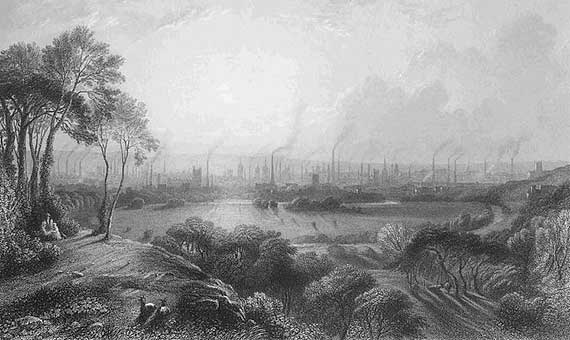“Americans no longer talk to each other, they entertain each other. They do not exchange ideas, they exchange images.” This quote could be taken as a lamentation of the current social degradation caused by the omnipresent cell phones and their applications. However, when Neil Postman included this remark in his book Amusing Ourselves to Death (1985), Steve Jobs would not announce the iPhone for another two decades and the creators of Facebook and Instagram were only babies.
Postman stated that the culture of entertainment generated vast amounts of information without offering any sort of context for understanding, which made the information useless. Over thirty years ago, Postman was already describing a society embarked on an out-of-control journey toward “mass stupidity” and depicted a future when people would live under a framework of useless formal freedoms because nobody would know how to exercise them. However, this society of idiots saw the birth of Mark Zuckerberg and other brilliant creators of new technologies who keep accelerating the development of civilization in that same direction.

The technological revolution has changed how we communicate, get information or look for a partner; and the speed at which these transformations happen have left many people perplex. Like Postman in the 1980s, new intellectuals are now warning of the harmful consequences that will derive from not breaking our screen addiction in time; and they are already blaming social media (and the scheming by their owners) for the ascension of populist leaders such as Donald Trump and Jair Bolsonaro. However, perplexity at technological innovations and change in general has been seen throughout history.
The emergence of the printing press
The printing press enabled mass and global dissemination of ideas which took humanity to peaks to knowledge from where it is being dragged down by the creations from Silicon Valley. However, its invention also led to criticisms, which are not too dissimilar to the arguments of current perplexed critics. In In praise of scribes, the 15th-century monk Johannes Trithemius defended that copying books by hand meant that their content was assimilated into the minds of copyists. If this task were to be put aside after the invention of the printing press, the monks could become lazy and their devotion might be affected. Nevertheless, Trithemius had his texts printed with Guttenberg’s machine so that they were widely disseminated.
“The Egyptians built the pyramids, buildings that caused great perplexity because only the engineers knew how it was possible to create them,” explained Miguel Ángel Quintanilla, the science philosopher, to OpenMind. “For the average person, the pyramids were the work of the gods, something incomprehensive, like it happens now with artificial intelligence,” he added. A similar reaction was caused by the gates at the temple in Alexandria; they opened automatically with the assistance of what is believed to have been the first steam-powered machine. “The believers thought it was a miracle,” said Quintanilla. “In unequal societies, technologies are controlled partly because of the mystery involving their internal operation,” he added.

For Juan Pimentel, a researcher at the CSIC’s Human and Social Sciences Center, perplexity does not have to be negative. “It’s a term very close to curiosity, the capacity for wonderment, for being surprised at the unexpected,” he said. “Aristoteles said that our capacity for wonderment was behind knowledge and Albertus Magnus [one of the greatest scholars of the Middle Ages] called wonder the systole of the heart,” he mentioned. “But we have reached a time when this impulse to know may have been stalled by the accelerated exposure to new wonders. Humanity has lived similar periods before (the discovery of America and the indigenous populations was almost like meeting aliens) but the difference is the scale and pace of the changes. It is something similar to the environmental crises caused by humans. They have always existed but not at this scale,” he concluded.
Major acceleration of change
Fernando Broncano, professor at Universidad Carlos III de Madrid, agrees. “In the Neolithic [the revolution brought by agriculture or stockbreeding which led to the emergence of cities, writing and civilization] or after the printing press was invented, the transformation of people’s daily lives were very gradual,” he remarked. This changed with the first industrial revolution and the emergence of industrial cities such as Manchester or Liverpool. As it happened with the invention of electricity or the arrival of transportation, the witnesses to these changes saw how their world turned upside down in one generation. At the beginning of the 20th century, after decades when many believed that reason and bourgeois democracy would bring lasting happiness to people in Europe, the First World War started and led to unprecedented bloodshed which was only possible thanks to the latest scientific and technological advances. Perplexity at out-of-control and cataclysmic progress is reflected in a sentence by Walter Benjamin, as quoted by Broncano: “They went to colleges in carriages and returned from the war in trucks.”

As it happened before, the changes brought about by the internet or mobile technologies and the changes that may be brought by artificial intelligence will generate some nostalgia of the past and fear of an apocalyptic future. These are two almost instinctive tendencies that are not necessarily grounded in real perspectives. You only have to look at the countless movies set in a dystopian future and the very few taking place in a future better than today’s world. The past, when we were all more similar and we each knew our place in the world, is also very appealing as shown by the worldwide boom of reactionary movements. Thinkers must identify the substantiated fears and the convenient nostalgias.
Creating likeable technologies
“Each historical change creates an imaginary view of a Golden Age,” said Broncano. “Community ties were stronger and the changes bring a loss of emotional density and ties, and an increase in loneliness,” he went on to say. “During Hellenism, when the Mediterranean became a single space after Alexander the Great, philosophy at the time became nostalgic of the past. This melancholy was also present in Humanism after the discovery of America,” he stated. “But melancholy can sometimes be paralyzing and other times it helps you save what needs to be saved, and this is what the study of Humanities should be about: detecting what is a sustainable culture and what we cannot do without,” he added. “We must save the social fabric; we can’t keep building loneliness and spaces where people feel increasingly more detached from each other, and we can’t build societies where people have less ability to choose their future,” he ended.
Perplexity is an omnipresent human trait but it is possible to guide it toward curiosity and move it away from alienation. Quintanilla mentions the black-box syndrome surrounding many new technologies where “any technical system is composed of mutually opaque subsystems where only the incoming and outgoing flow is known.” We can see something like this in mechanical repair shops, which have become black-box managers. Users no longer understand the structure of technology and, naturally, are unable to handle their car to try and repair it like they used to do not so long ago. “This generates a sense of alienation, something similar to what happened with the pyramids because the engineers hid how they worked to preserve their own power,” he added. “We must build an alternative model of technological development: likeable rather than alienating technologies, transparent boxes, reversible and environmentally sustainable technologies.”
Ventana al Conocimiento
Comments on this publication